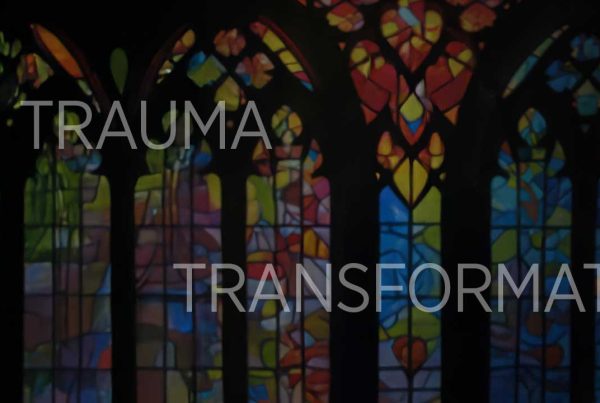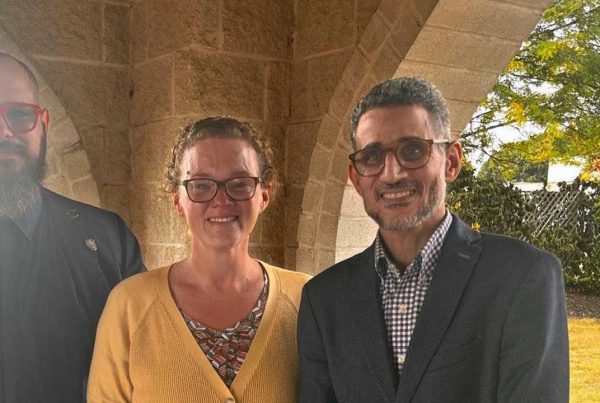Faith in Action, not Faith Inaction: Don Knebel, Presidential Award of Excellence Recipient
If Don Knebel had been born in Egypt, he’d be a Muslim.
It’s a truth he’s known since growing up in Star City, Indiana—population 344. And, frankly, it’s a truth he’s known because of Star City.
The Star City United Methodist Church, Knebel recalls of his childhood in the 1950s and 60s, was the heart of the small community. But it was the heart of the community because it was the conscience of the community, bringing people together to discuss the issues relevant to not just the community but the world. That connection with the church spurred his own parents on to community service, with each winning Pulaski County’s Senior Citizen of the Year award.
“Religion is a framework for people to help other people,” says Knebel. “Christianity was the framework I was born into to help other people and to help them now.”
And, as he told a Muslim tour guide on a trip to Egypt: religions pick us—we don’t pick them. She agreed—it’s what we do through our religion for others—and it gave Knebel the anecdote he’d been waiting on to explain why interfaith cooperation is so important: a small-town boy on a bus in Egypt, finding more in common than not with Muslims.
He was drawn into service at Christian Theological Seminary, joining the board of trustees in 2012—completing 12 years of service this year. And, at the May 2025 Commencement, he’ll be awarded the Presidential Award of Excellence.
His proudest work at CTS is his role in helping start the Faith & Action Project alongside Mike and Sue Smith.
“It’s always been important to me that Christianity is more than what you believe. It’s also what you do,” says Knebel. “Mike Smith had this idea about ten years ago to change the views within the city of what’s important. But it all started with the idea of faith and action being linked —rather than faith OR action.”
In fact, Knebel reveals that early brainstorming for the name of the group produced “Faith in Action.” It was quickly scrapped, though, because it sounded like “Faith Inaction.”
In watching Faith & Action grow, Knebel has found in Indianapolis what he had so long ago found in Star City: a religious group acting as the conscience and convener of the community.
“Faith & Action makes Indianapolis a better place by convening people on issues of poverty and racism,” says Knebel. “We’re not just saying we’re anti-bias, we’re actively showing it by making people aware of the poverty in our community. And what’s great about it is that every faith tradition can make this city a better place. Through every sermon preached and every member of clergy engaged on poverty, we are making people aware of their obligation to do something about it.”
“The important part of faith doesn’t just take place on Friday, Saturday or Sunday or whenever people gather to worship,” says Knebel. “That’s not what Jesus taught. That’s the idea of Faith & Action being joined—they’re inseparable.”
Knebel is a Christian and has a challenge for his own faith. With talks, writings, and podcasts, he’s challenging Christians to worry about more than their own salvation. It’s an important reminder for a community like Christian Theological Seminary.
“In some churches today, if you join a church, all you have to say is that you believe in Jesus,” says Knebel. “But if you join Kiwanis or another similar club, you say you will help the community.”
For Knebel, two of the most important verses in the entire Christian Bible may have been written by or for the brother of Jesus: Faith by itself, if it is not accompanied by action, is dead. (James 2:17) You see that a person is justified by what he does and not by faith alone. (James 2:24). For him, this often-ignored lesson is consistent with the teachings of Jesus and especially his lessons in Matthew 25. The church he belongs to, Northminster Presbyterian, is expressly a Matthew 25 congregation and he is proud of that.
His travels, which he documents on his website donknebel.com, focus on destinations important to faith traditions around the world. It’s one way he’s continued his interest in interfaith cooperation. (Knebel was founding board chair of the Center for Interfaith Cooperation in 2011.) Knebel sees religion as a connector—not something that should separate people from different traditions.
“When I go to an international airport, I see a sign that says the word ‘welcome’ in 30 languages,” Knebel says. “No one asks which language is ‘true.’ Why do we have to ask which religion is true?”
For Knebel, Christianity and religion generally are about Faith & Action—not Faith Inaction. “Every religion outside of parts of Christianity today seeks to do something for humanity in the here and now,” says Knebel. “And I see Christian Theological Seminary as a leading voice for making that a focus of modern Christianity.”





